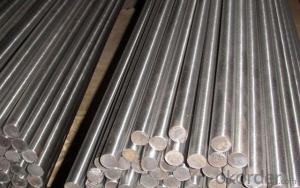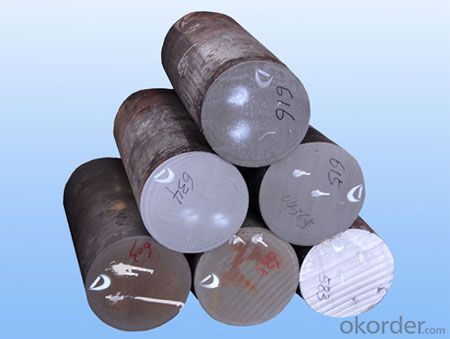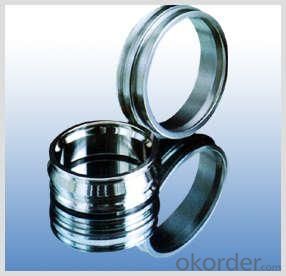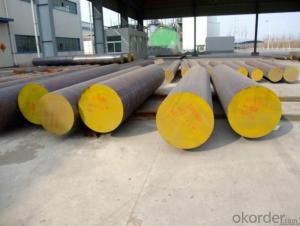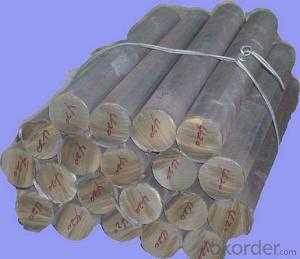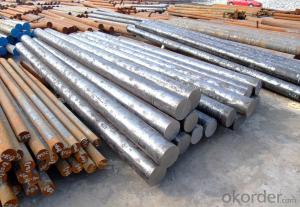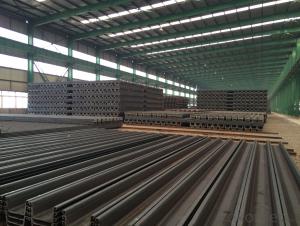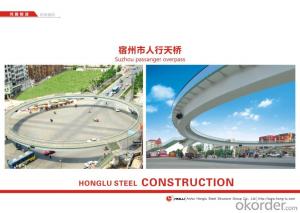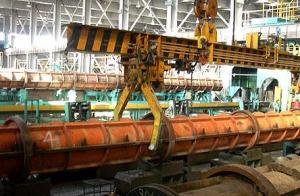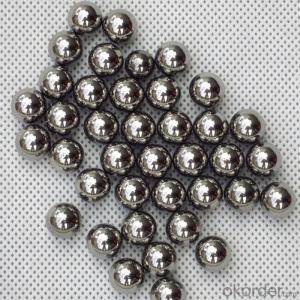Stainless light steel rail made in China
- Loading Port:
- Tianjin
- Payment Terms:
- TT or LC
- Min Order Qty:
- 10000 m.t.
- Supply Capability:
- 1000 m.t./month
OKorder Service Pledge
OKorder Financial Service
You Might Also Like
Product Description:
OKorder is offering Stainless light steel rail made in China at great prices with worldwide shipping. Our supplier is a world-class manufacturer of steel, with our products utilized the world over. OKorder annually supplies products to European, North American and Asian markets. We provide quotations within 24 hours of receiving an inquiry and guarantee competitive prices.
Product Applications:
Stainless light steel rail made in China are ideal for structural applications and are widely used in the construction of buildings and bridges, and the manufacturing, petrochemical, and transportation industries.
Product Advantages:
OKorder's Stainless light steel rail made in China are durable, strong, and resist corrosion.
Main Product Features:
· Premium quality
· Prompt delivery & seaworthy packing (30 days after receiving deposit)
· Corrosion resistance
· Can be recycled and reused
· Mill test certification
· Professional Service
· Competitive pricing
Product Specifications:
Grade | AISI 52100, ASTM E52100, DIN 1.3505,JIS SUJ2, GCr15 |
Dimensions | Diameter: 30-60mm Length: 2000-13000mm or as required |
Shape | Round Bar |
Type | Alloy Steel Bar |
Delivery Condition | Black Surface |
Material | Bearing Steel |
Technique | Hot Rolled |
Usage and Applications of Bearing Steel Round Bar
Bearing steels are used for ball and roller bearing applications and are comprised of low carbon steels and high carbon through harden able steel.
First the famous 1C-1.5Cr steel from which the majority of bearings are made. Its structure is apparently well-understood and the focus is on purity in order to avoid inclusions which initiate fatigue during rolling contact. Then there is the M50 steel and its variants, from which bearings which serve at slightly higher temperatures in aeroengines are manufactured, based on secondary-hardened martensite.
Tapered roller bearing are generally used to support combined load mainly consisting of radial load. Their cups are separable for easy assembling ,During mounting and using, radial clearance and axial clearance can be adjusted and preloaded mounting can be made.
Packaging & Delivery of Bearing Steel Round Bar
Packaging Detail: ASTM 52100 Steel in seaworthy packing or on customer request; Packed in bundles with standard export sea-worthy package or as customer require
Delivery Detail: 45 days after confirmed
Trade terms: FOB, CFR, CIF ou as customer's required
MOQ: 25 tons or at customer's demands. If the quantity is good, the price will be better.
Processing of Bearing Steel Round Bar
The processing of Bearing Steel Round Bar is hot rolled (strictly control sulphur, phosphorus and non-metallic inclusions content and distribution)
Chemical Composition of Bearing Steel Round Bar
C | Si | Mn | Cr | Ni | Cu |
Equal or less than | |||||
0.95-1.05 | 0.15-0.35 | 0.25-0.45 | Cr:1.40-1.65 | 0.30 | 0.25 |
All products' chemical composition and specification can be design according to customers' requirement.
Note of Bearing Steel Round Bar
1. According to national standard (GB) for our products, if not, supply according to national standards (GB) or agreement.
2. We can not only provide electric furnace +LF+VD and electros lag re-melting (ESR) steel forging materials, but also forging products of piece, bar, etc.
3. Our company is equipped with roll equipment and can provide our customers with roll billets or finished.
4. Please send us your detailed specifications when inquire. We will reply to you ASAP.
5. Certificate of quality is issued in English, in addition the normal terms, production process, the mechanical property (yield strength, tensile strength, elongation and hardness. forged ratio, UT test result, Grain size, heat treatment methods and the sample of is shown on the certificate
FAQ:
Q1: How do we guarantee the quality of our products?
A1: We have established an advanced quality management system which conducts strict quality tests at every step, from raw materials to the final product. At the same time, we provide extensive follow-up service assurances as required.
Q2: How soon can we receive the product after purchase?
A2: Within three days of placing an order, we will begin production. The specific shipping date is dependent upon international and government factors, but is typically 7 to 10 workdays.
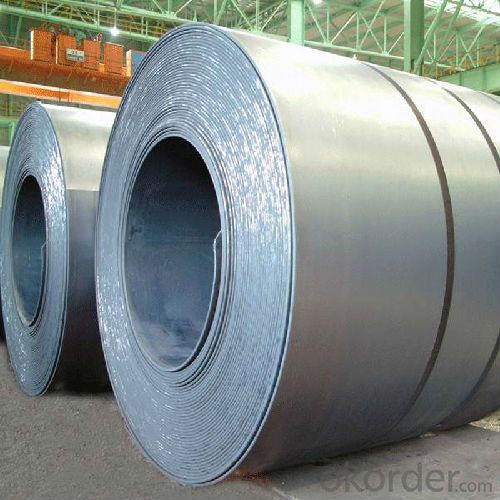
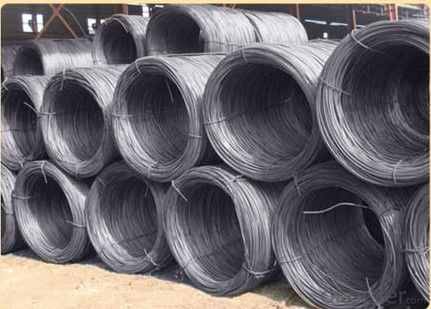
- Q: How does the corrosion resistance of special steel compare to regular steel?
- The corrosion resistance of special steel is generally superior to that of regular steel due to its unique composition and additional alloying elements that enhance its durability and protect it from corrosion.
- Q: What are the requirements for special steel used in electronic components?
- The requirements for special steel used in electronic components are quite specific and stringent. Firstly, the steel must possess excellent electrical conductivity to ensure effective transmission of electrical signals within the components. This is crucial for maintaining the functionality and performance of electronic devices. Additionally, the steel used in electronic components must have high corrosion resistance to protect the components from environmental factors such as moisture, humidity, and chemical exposure. Corrosion can lead to deterioration and failure of the electronic components, so the steel must be able to withstand these potential hazards. Another important requirement is that the special steel should have low magnetic permeability. Magnetic interference can negatively impact the performance of electronic components, especially in sensitive devices such as microchips. Therefore, the steel used in electronic components should have minimal magnetic properties to prevent any interference with the operation of the components. Furthermore, the steel must have good thermal conductivity to facilitate efficient dissipation of heat generated within the electronic components. This is particularly crucial in devices that generate a significant amount of heat, as inadequate thermal conductivity can lead to overheating and potential damage to the components. Lastly, the special steel used in electronic components should have high strength and durability to ensure longevity and reliability. The components are often exposed to mechanical stress, vibrations, and other external forces, so the steel must possess the necessary strength to withstand these conditions without deformation or failure. In summary, the requirements for special steel used in electronic components include excellent electrical conductivity, high corrosion resistance, low magnetic permeability, good thermal conductivity, and high strength and durability. Meeting these requirements is essential for ensuring the optimal performance and longevity of electronic devices.
- Q: How is stainless steel used in food processing?
- Stainless steel is widely used in food processing due to its hygienic properties and corrosion resistance. It is commonly used to manufacture equipment such as tanks, pipes, and utensils, ensuring that the food remains uncontaminated and safe for consumption. Additionally, stainless steel is easy to clean and maintain, making it an ideal material for food processing environments where cleanliness and sanitation are crucial.
- Q: What are the different certifications available for special steel?
- Depending on the specific industry and application, there are multiple certifications available for special steel. Some of the well-known certifications are as follows: 1. ISO 9001: This certification ensures that the special steel manufacturer has implemented and maintained a quality management system that adheres to international standards. It signifies the company's dedication to consistently delivering products that meet customer requirements. 2. ISO 14001: This certification focuses on environmental management and guarantees that the special steel manufacturer has adopted eco-friendly practices in their operations. It showcases the company's commitment to reducing their impact on the environment. 3. Certifications by ASME (American Society of Mechanical Engineers): ASME provides several certifications for special steel used in pressure vessels, boilers, and other applications. These certifications ensure that the special steel meets industry-specific quality and safety standards. 4. PED (Pressure Equipment Directive): This certification is mandatory for special steel used in pressure equipment within the European Union. It guarantees that the steel meets specific safety and quality requirements. 5. Certifications by NACE (National Association of Corrosion Engineers): NACE offers certifications for special steel used in corrosive environments. These certifications ensure that the steel possesses the necessary resistance against corrosion and can endure harsh conditions. 6. Certifications by API (American Petroleum Institute): API offers certifications for special steel used in the oil and gas industry. These certifications ensure that the steel meets various quality and performance standards required for different applications in the industry. 7. Certifications by ASTM (American Society for Testing and Materials): ASTM provides various certifications for special steel based on specific standards and specifications. These certifications guarantee that the steel satisfies the required mechanical properties, chemical composition, and other criteria. Manufacturers, suppliers, and end-users should take these certifications into consideration when selecting special steel for their specific applications. These certifications provide confidence and assurance regarding the quality, safety, and performance of the special steel products.
- Q: What are the properties of magnetic steel?
- Magnetic steel is characterized by its ability to attract and hold a magnetic field. It has a high magnetic permeability, allowing it to easily magnetize and demagnetize. Magnetic steel also exhibits high coercivity, meaning it has a strong resistance to losing its magnetization. Additionally, it possesses high electrical conductivity and is often used in various applications such as transformers, motors, and magnetic storage devices.
- Q: How is high-speed tool steel used in the production of machining tools?
- High-speed tool steel is used in the production of machining tools due to its exceptional hardness and ability to retain its cutting edge even at high temperatures. This steel is used to create tool bits, inserts, and drill bits that are capable of withstanding the high speeds and forces involved in machining processes. Its high wear resistance and heat resistance properties make it an ideal choice for manufacturing cutting tools that can efficiently shape and form various materials during machining operations.
- Q: How is special steel tested for quality control?
- Special steel is tested for quality control through various methods, such as mechanical testing, chemical analysis, and non-destructive testing. Mechanical testing involves assessing the steel's strength, hardness, toughness, and other mechanical properties through techniques like tensile, impact, and hardness testing. Chemical analysis is performed to ensure the steel meets the desired composition and impurity levels, utilizing techniques like spectrometry. Non-destructive testing methods, like ultrasonic, magnetic particle, and visual inspection, are used to detect any surface or internal defects in the steel. These rigorous testing procedures ensure that special steel meets the required quality standards before it is used in various applications.
- Q: Can special steel be welded?
- Yes, special steel can be welded. However, the specific welding process and techniques may vary depending on the type of special steel being used. It is important to have a good understanding of the particular steel's composition and properties to ensure proper welding procedures are followed.
- Q: What are the future trends and innovations expected in special steel production?
- In the future, we can expect several trends and innovations in special steel production. One of the key trends is the development of advanced alloys with improved strength, corrosion resistance, and heat resistance properties. These alloys will be tailored to meet the specific requirements of industries such as automotive, aerospace, and energy. Another trend is the adoption of advanced manufacturing techniques, including additive manufacturing or 3D printing. This technology enables the production of complex geometries and customized components, leading to increased efficiency and reduced material waste. Furthermore, the integration of digital technologies and data analytics will play a significant role in optimizing production processes and improving quality control. Predictive maintenance systems, real-time monitoring, and artificial intelligence-based algorithms will enhance productivity and reduce downtime. Sustainability and environmental concerns will also shape the future of special steel production. There will be a focus on developing greener processes, such as using renewable energy sources and reducing carbon emissions. Additionally, the recycling and reusing of steel will be emphasized to minimize waste and conserve resources. Overall, the future of special steel production will be marked by advanced alloys, additive manufacturing, digitalization, sustainability, and a continued commitment to meeting the evolving needs of various industries.
- Q: What are the different surface hardening methods used for special steel?
- Special steel can be enhanced in hardness and wear resistance through various surface hardening methods. These techniques are employed to cater to specific applications. Some commonly utilized methods for surface hardening special steel are as follows: 1. Carburizing: By introducing carbon into the steel's surface via heating it in a carbon-rich environment, such as a carbon-containing gas or liquid, carburizing is performed. The steel absorbs the carbon, resulting in a high-carbon layer on the surface. This process enhances the steel's hardness and wear resistance, making it suitable for applications demanding strength and durability. 2. Nitriding: Nitriding involves introducing nitrogen into the steel's surface. This is achieved by heating the steel in an atmosphere of ammonia gas. The nitrogen diffuses into the steel, forming a nitride layer on the surface. Nitrided steel exhibits increased hardness, improved wear resistance, and enhanced fatigue strength. It is commonly used in applications requiring high surface hardness, like gears, bearings, and tools. 3. Induction hardening: Induction hardening is a localized surface hardening method that entails heating specific areas of the steel using electromagnetic induction. The heated regions are then rapidly quenched, resulting in a hardened surface layer. Induction hardening is employed for components demanding high surface hardness, such as shafts, gears, and camshafts. It provides precise control over the hardened area, leading to improved wear resistance and fatigue strength. 4. Flame hardening: Flame hardening involves heating the steel surface using a high-temperature flame and quickly quenching it. This process creates a hard surface layer while leaving the core of the steel relatively unchanged. Flame hardening is commonly used for large and intricately shaped components, including axles, crankshafts, and machine tool slides. 5. Laser hardening: Laser hardening is a precise and localized surface hardening method that utilizes a high-energy laser beam to heat and melt the steel's surface. By moving the laser beam across the surface, a hardened layer is formed. Laser hardening provides precise control over the hardened area, resulting in improved wear resistance and fatigue strength. It is commonly applied to small and intricate components, such as cutting tools, molds, and dies. These are merely a few examples of the surface hardening methods frequently employed for special steel. Each method offers distinct advantages and is selected based on the specific requirements of the application. By utilizing these surface hardening techniques, special steel can be customized to meet the needs of various industries, including automotive, aerospace, and manufacturing.
Send your message to us
Stainless light steel rail made in China
- Loading Port:
- Tianjin
- Payment Terms:
- TT or LC
- Min Order Qty:
- 10000 m.t.
- Supply Capability:
- 1000 m.t./month
OKorder Service Pledge
OKorder Financial Service
Similar products
Hot products
Hot Searches
Related keywords
